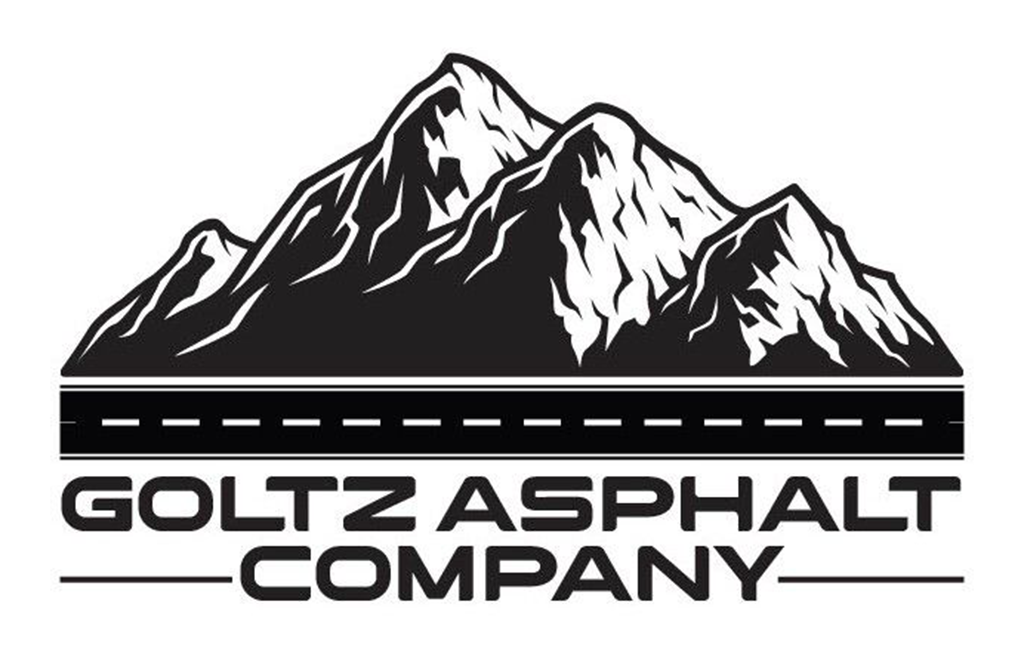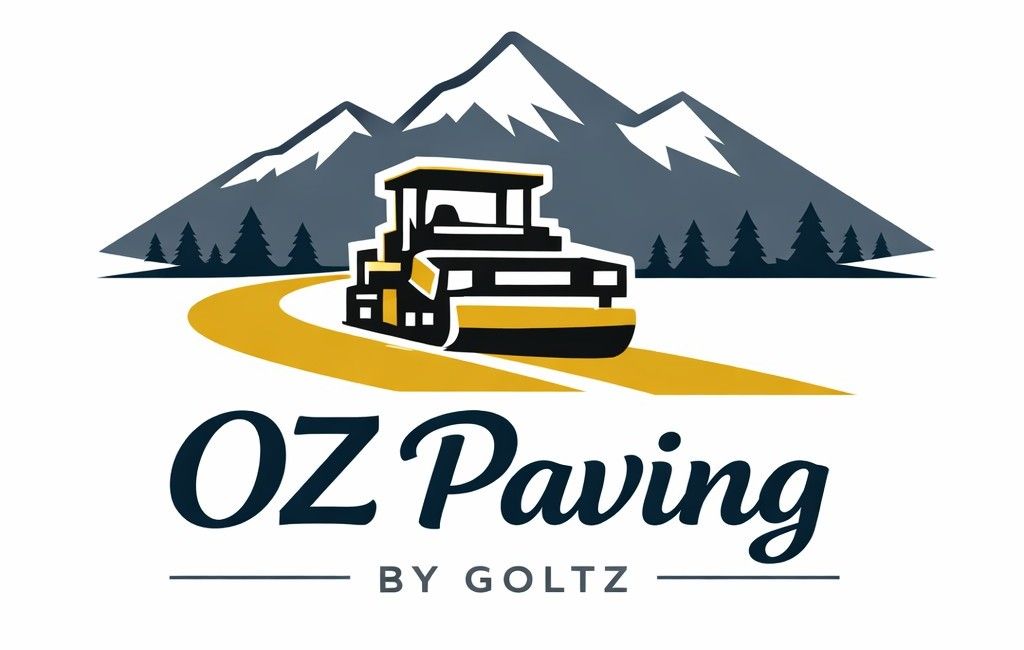When and Why You Need a Backhoe: Top Projects That Call for Heavy Equipment
When and Why You Need a Backhoe: Top Projects That Call for Heavy Equipment
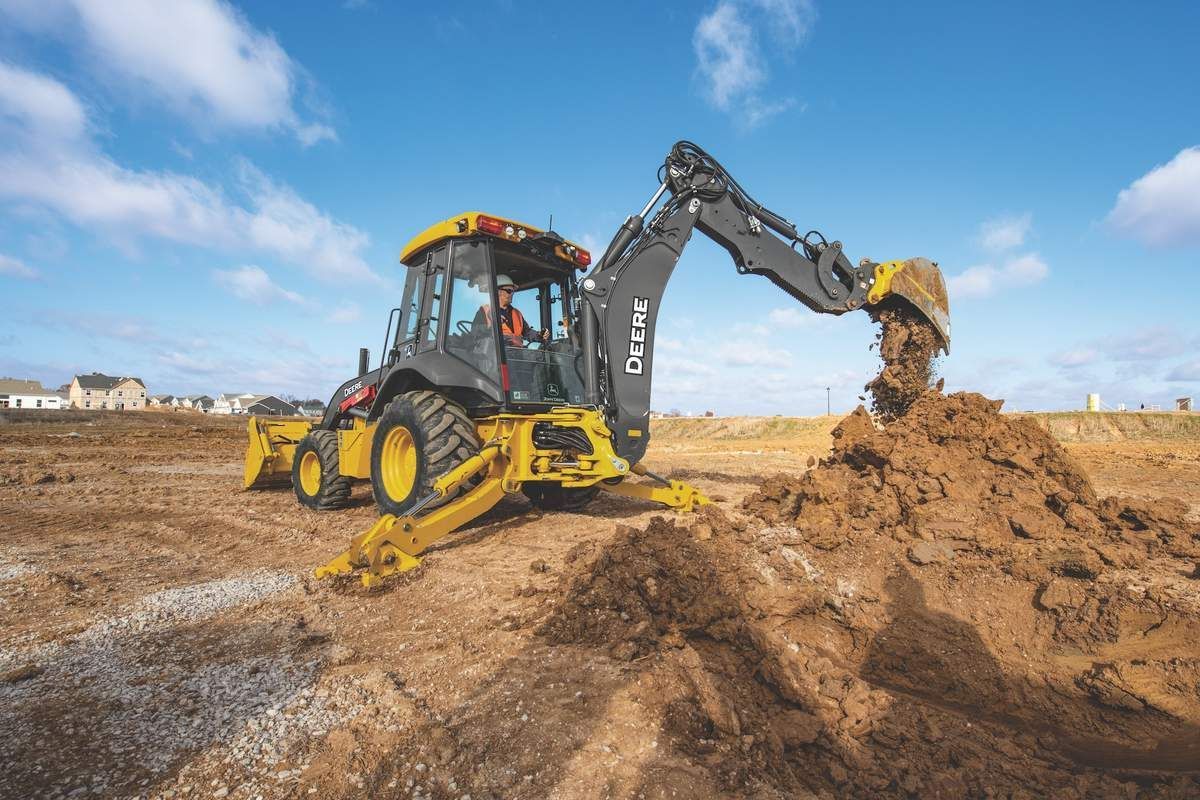
Backhoes are among the most versatile pieces of construction equipment available today. Combining a front loader bucket with a rear digging arm, they’re designed to handle both digging and loading tasks—making them indispensable on a wide variety of job sites.
If you’re asking yourself “When should I use a backhoe?” this guide covers the most common backhoe projects, from excavation to landscaping and beyond.
1. Excavation and Trenching
Backhoes excel at digging trenches for underground utilities like water lines, electrical conduits, or sewer systems. Their precision and depth capability make them a smarter choice than manual labor or smaller machines.
This makes them the go-to option for:
Foundation digging
Drainage system installation
Utility trenching projects
2. Landscaping and Land Clearing
If you’re planning a major landscaping overhaul, a backhoe can save days of work. From removing stumps to leveling terrain and hauling topsoil, this equipment handles both heavy-duty digging and material movement.
Common landscaping uses:
Tree planting holes
Clearing brush and rocks
Moving mulch, gravel, or dirt
3. Roadwork and Parking Lot Preparation
Before any asphalt paving or parking lot repaving project, the ground must be excavated, graded, and cleared of old materials. Backhoes make quick work of:
Breaking up old pavement
Preparing road subgrades
Loading debris into dump trucks
They’re a staple in road construction and repair projects across residential and commercial properties.
4. Demolition and Debris Removal
For small-scale demolition jobs, backhoes are highly efficient. The bucket and hydraulic power allow them to tear out driveways, patios, and retaining walls, while the loader clears debris for disposal.
This dual functionality reduces the need for multiple machines on-site.
5. Utility and Septic System Installation
Installing septic tanks or underground pipes requires precision excavation. Backhoes dig large, accurate holes while minimizing damage to surrounding property.
They’re widely used for:
Septic system installation and repair
Utility trenching
Digging for water tanks or cisterns
6. Agricultural and Farm Applications
On farms, backhoes are often the most reliable multi-task tool. They can dig irrigation ditches, clear rocks from fields, and even help with fence line repairs. Their ability to switch quickly between digging and loading makes them especially useful in rural settings.
Final Thoughts
From construction projects to landscaping and farm work, backhoes are one of the most adaptable pieces of heavy equipment available. If your job involves digging, hauling, or clearing, renting or hiring a backhoe operator can save time, reduce costs, and ensure professional results.
Top Backhoe Projects | When to Use a Backhoe for Construction & Landscaping
Discover the most common backhoe projects—from excavation and trenching to landscaping, roadwork, and septic installation. Learn when to rent or use a backhoe for your job.
Backhoe rental projects
When to use a backhoe
Common backhoe uses
Backhoe for landscaping
Backhoe excavation projects
Construction equipment uses
Septic system backhoe installation
Roadwork with backhoe

For Homeowners Associations (HOAs), private roads and community streets are among the most expensive and visible assets the association owns. Whether in gated communities, townhome developments, or condominium complexes, HOA road maintenance, repair, and replacement directly affect safety, liability, homeowner satisfaction, and long-term property values. Neglecting asphalt roads leads to escalating repair costs, resident complaints, and potential legal exposure. Proactive HOA asphalt road management protects both the community and the association’s financial health. HOA Private Roads Are a Major Community Investment HOA-owned roads handle constant traffic from residents, guests, delivery vehicles, service trucks, and emergency responders. Over time, asphalt deterioration, cracking, potholes, and drainage failures occur without proper maintenance. Well-maintained HOA private roads: Enhance curb appeal throughout the community Support higher home resale values Reflect responsible HOA governance Poor road conditions, on the other hand, quickly become a top homeowner concern and a visible sign of deferred maintenance. Preventative HOA Road Maintenance Saves Money Routine HOA asphalt road maintenance is significantly more cost-effective than full road reconstruction. Preventative services such as: Asphalt sealcoating Crack sealing and joint repair Surface patching Drainage corrections help prevent water infiltration and base failure—the leading causes of asphalt road damage. Consistent maintenance can extend the life of HOA roads by several years, helping associations plan responsibly and avoid unexpected special assessments. Safety and Liability on HOA Roads Cracked asphalt, potholes, uneven pavement, and poor drainage create serious safety hazards on HOA private roads. HOAs can be held liable for vehicle damage, pedestrian injuries, and accidents caused by unsafe road conditions. Maintaining HOA roads helps: Reduce trip-and-fall and vehicle damage claims Improve driving and walking safety for residents Lower insurance risk and legal exposure Clear lane markings, smooth driving surfaces, and proper drainage are essential for safe community streets. Knowing When HOA Road Repair Is No Longer Enough While HOA road repair can address isolated issues, there comes a point when HOA asphalt road replacement is the most practical long-term solution. Warning signs include: Widespread alligator cracking Chronic pothole formation Failing road base or subgrade Persistent water pooling and drainage failure Continuing to patch severely deteriorated roads often costs more over time than investing in a full asphalt replacement that delivers lasting results. Protecting Property Values in HOA Communities Buyers and real estate agents notice road conditions immediately when entering a neighborhood. Smooth, well-maintained HOA private roads: Improve first impressions Increase home marketability Support higher resale prices Maintaining community roads is a direct investment in protecting homeowner equity. Planning HOA Road Projects and Reserve Funding Proper HOA road maintenance planning supports accurate reserve studies and long-term budgeting. Working with a professional HOA asphalt contractor allows boards to: Assess pavement conditions Develop phased maintenance or replacement plans Forecast future capital needs Communicate clearly with homeowners Proactive planning reduces emergency repairs and helps avoid sudden special assessments. Choosing an Asphalt Contractor for HOA Roads HOA road projects require specialized experience. The right HOA road paving contractor understands: HOA approval and bidding processes Resident communication and scheduling Local codes and ADA considerations Long-term asphalt performance Partnering with an experienced contractor ensures quality workmanship and predictable outcomes for the association. Final Thoughts For HOA boards and community managers, maintaining private roads and asphalt streets is one of the most important responsibilities of HOA leadership. Proactive HOA road maintenance, timely repairs, and strategic asphalt replacement reduce liability, control long-term costs, and preserve community value. Investing in HOA roads today prevents major expenses tomorrow—and ensures safe, attractive streets for every resident.
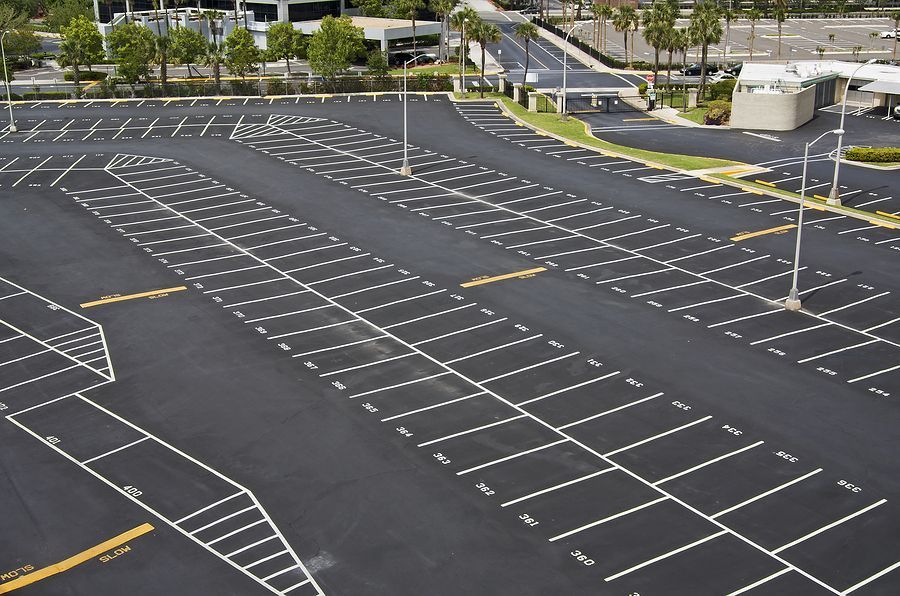
For multi-family property managers and commercial property managers, the condition of an asphalt parking lot is far more than a cosmetic concern—it’s a critical asset that affects safety, liability, tenant satisfaction, and long-term operating costs. Asphalt parking lot maintenance, repair, and replacement should be a top priority for any property management strategy. Neglecting parking lot upkeep can quickly lead to costly repairs, legal exposure, and reduced property value. Proactive asphalt maintenance, on the other hand, protects your investment and improves the overall experience for tenants, customers, and visitors. First Impressions Matter for Commercial and Multi-Family Properties Your parking lot is the first thing people see when arriving at an apartment complex, shopping center, office building, or industrial property. Cracked pavement, potholes, faded striping, and drainage issues signal neglect—even if the building itself is well-maintained. For commercial real estate, a deteriorating asphalt parking lot can: Drive customers away Hurt tenant retention Reduce curb appeal and perceived value For multi-family housing, poor parking conditions directly affect tenant satisfaction and lease renewals. Well-maintained asphalt communicates professionalism, safety, and pride of ownership. Asphalt Parking Lot Maintenance Prevents Costly Repairs Routine asphalt parking lot maintenance is the most cost-effective way to extend pavement life. Services like: Sealcoating Crack sealing Line striping Surface cleaning help prevent water infiltration, UV damage, and oxidation—three of the biggest causes of asphalt failure. Without preventative maintenance, small cracks become large potholes, and minor surface wear turns into full-depth pavement damage. For property managers, delayed maintenance almost always means higher repair costs and shortened asphalt lifespan. Safety and Liability Are Major Concerns for Property Managers Cracked asphalt, uneven surfaces, and potholes are serious trip-and-fall and vehicle damage hazards. Commercial property owners and multi-family property managers can be held liable for injuries caused by unsafe parking lot conditions. Maintaining and repairing asphalt parking lots helps: Reduce slip-and-fall accidents Improve pedestrian and vehicle safety Lower insurance claims and legal exposure Clearly marked parking spaces, ADA-compliant striping, and smooth pavement are essential for meeting safety standards and protecting your organization. Knowing When Asphalt Repair Is No Longer Enough While asphalt repair can solve many issues, there comes a point when asphalt parking lot replacement is the smarter long-term solution. Signs that full replacement may be necessary include: Extensive alligator cracking Chronic drainage problems Repeated pothole repairs Failing sub-base or structural damage For commercial and multi-family properties, continuing to patch a failing parking lot often costs more over time than investing in a new asphalt surface. Strategic replacement improves durability, appearance, and long-term ROI. Protecting Property Value and Long-Term ROI A properly maintained asphalt parking lot directly impacts property value. Investors, tenants, and buyers all consider exterior infrastructure when evaluating a property. Regular maintenance and timely replacement: Extend asphalt life by years Reduce capital expenditures over time Improve resale and lease value For property managers responsible for budgets and long-term planning, asphalt maintenance is not an expense—it’s an investment. Partnering With a Professional Asphalt Contractor Experienced asphalt paving contractors can help property managers develop a long-term pavement management plan tailored to their property type, traffic load, and climate. Working with professionals ensures: Proper asphalt installation High-quality repairs Scheduled maintenance programs Compliance with local codes and ADA requirements A trusted asphalt contractor becomes a valuable partner in protecting your commercial or multi-family property. Final Thoughts For multi-family and commercial property managers, maintaining asphalt parking lots is essential for safety, appearance, compliance, and financial performance. Proactive asphalt maintenance, repair, and replacement reduces risk, controls costs, and enhances the overall success of your property. Ignoring parking lot conditions today can lead to expensive problems tomorrow. Investing in professional asphalt care ensures your property remains safe, attractive, and profitable for years to come.
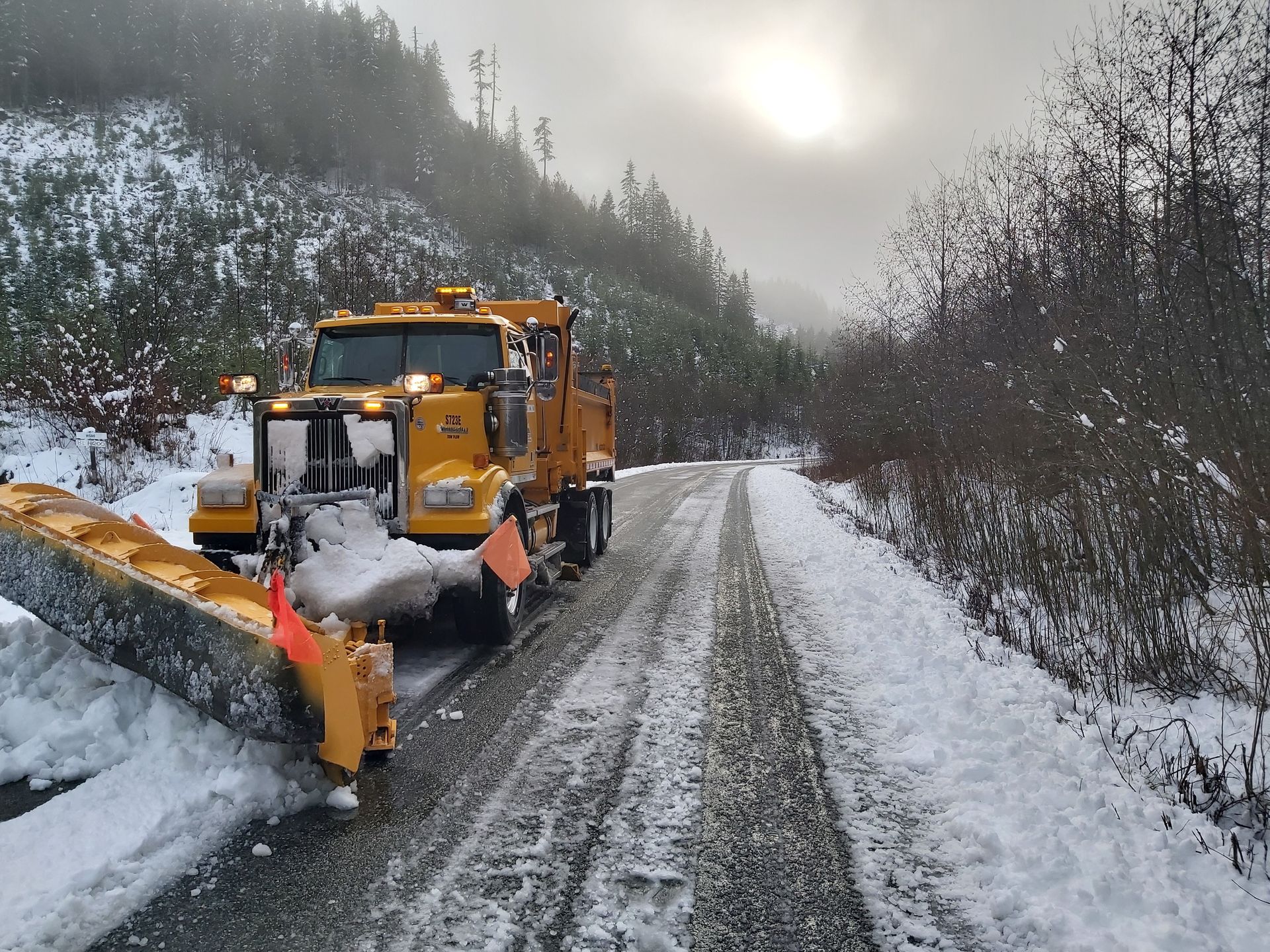
Cold weather and snow can cause serious damage to asphalt surfaces. While parking lots and driveways may look fine during winter, freezing temperatures, moisture, and snow removal quietly weaken the pavement. By the time spring arrives, many property owners are left dealing with cracks, potholes, and surface deterioration. Understanding how winter weather impacts asphalt explains why spring asphalt repair and maintenance are critical for protecting your investment. Freeze-Thaw Cycles Are the Leading Cause of Asphalt Damage The biggest threat to asphalt during winter is the freeze-thaw cycle. Asphalt is slightly porous, allowing water to seep into small cracks. When temperatures drop, that water freezes and expands, forcing cracks to grow larger. When temperatures rise, the ice melts, leaving behind weakened pavement. This constant expansion and contraction happens repeatedly throughout winter, leading to significant asphalt cracking and structural damage by early spring. Snow and Ice Weaken Parking Lots and Driveways Snow and ice add weight and stress to already compromised asphalt surfaces. Large parking lots are especially vulnerable due to heavy vehicle traffic combined with snow accumulation. Ice traps moisture inside cracks, accelerating pavement failure. Snow plowing and shoveling also contribute to damage. Plow blades can scrape the asphalt surface, especially when it’s brittle from cold temperatures. Over time, this removes protective layers, exposing the pavement to faster wear and tear. Deicing Salt and Chemicals Break Down Asphalt Salt and chemical deicers are necessary for safety but harsh on asphalt. These materials increase the frequency of freeze-thaw cycles by melting ice during the day and refreezing overnight. They can also penetrate the asphalt surface, weakening the binder that holds the pavement together. This often results in accelerated damage in high-traffic areas like parking lot entrances, drive lanes, and driveways. Why Potholes Appear in Late Winter and Spring Potholes don’t form overnight. They begin as small cracks that fill with water. As winter progresses, freeze-thaw cycles and vehicle traffic cause pieces of asphalt to break apart. By late winter or early spring, potholes become visible and dangerous. Unrepaired potholes can cause vehicle damage, trip hazards, and potential liability issues for property owners. Spring Is the Best Time for Asphalt Repair and Maintenance Once snow melts and temperatures stabilize, the full extent of winter damage becomes clear. Spring asphalt repair is ideal because: Pavement is dry and ready for repair Asphalt materials cure properly in warmer temperatures Minor damage can be fixed before it spreads Addressing issues early prevents costly repairs or full pavement replacement later in the year. Recommended Spring Asphalt Services Most parking lots and driveways benefit from the following spring asphalt maintenance services: Crack filling to stop water intrusion Pothole repair to restore safety and prevent spreading damage Sealcoating to protect against moisture, UV rays, and oxidation Asphalt patching or resurfacing for heavily damaged areas Routine parking lot repair and driveway repair improves curb appeal, extends pavement life, and reduces long-term costs. Protect Your Parking Lot and Driveway This Spring Asphalt is a major investment for homeowners and businesses alike. While winter damage is unavoidable, expensive repairs are not. Scheduling spring asphalt maintenance allows small problems to be addressed before they turn into major failures. If your parking lot or driveway endured a harsh winter, now is the time to act. A professional inspection and timely repairs will improve safety, appearance, and longevity. Spring asphalt repair isn’t just maintenance — it’s prevention. Taking action now ensures your pavement is ready to handle traffic, weather, and wear throughout the year.

Every January, we all make New Year’s resolutions. Eat healthier. Get organized. Stop procrastinating. But there’s one resolution that homeowners, property managers, and business owners alike often overlook—finally fixing the asphalt. If cracked driveways, pothole-filled parking lots, and deteriorating pavement have been on your to-do list for years, this is the year to stop putting it off. Delaying asphalt repair and maintenance doesn’t just hurt curb appeal—it can cost you far more in the long run. Why Asphalt Repairs Always Get Delayed Asphalt problems rarely start big. A small crack here. Minor surface wear there. But ignoring early warning signs leads to major issues like: Widespread cracking and potholes Drainage problems and water damage Base failure requiring full asphalt replacement Safety hazards and liability risks Whether it’s a residential asphalt driveway or a commercial parking lot, postponing repairs allows damage to spread, especially through freeze-thaw cycles. Residential Asphalt: Start the Year With a Better Driveway Your driveway is one of the first things people notice about your home. Cracked or crumbling asphalt not only looks bad—it can reduce property value and create trip hazards. Common residential asphalt services homeowners put off include: Asphalt crack filling Driveway resurfacing Sealcoating asphalt driveways Asphalt patching and repairs Making asphalt maintenance your New Year’s resolution means extending the life of your driveway and avoiding a costly full replacement later. Residential asphalt repair is far more affordable when done early. Commercial Asphalt: Procrastination Is Expensive For businesses and property managers, neglected asphalt can be a serious liability. Uneven pavement and potholes can lead to accidents, vehicle damage, and even lawsuits. Commercial properties benefit from routine services like: Parking lot asphalt repair Commercial sealcoating Line striping and pavement markings Preventative asphalt maintenance programs A well-maintained parking lot improves customer experience, protects your investment, and shows professionalism. This year, resolve to stop deferring commercial asphalt repairs and protect your property. The True Cost of Waiting to Fix Asphalt One of the biggest misconceptions is that waiting saves money. In reality: Small asphalt cracks become large structural failures Minor repairs turn into full resurfacing projects Deferred maintenance shortens pavement lifespan Preventative asphalt maintenance can add years to the life of your pavement while keeping costs predictable. Sealcoating: The Easiest Resolution to Keep If you’re looking for a simple New Year’s win, asphalt sealcoating is one of the most effective and affordable services available. Benefits of sealcoating include: Protection from water, oil, and UV damage Improved appearance and curb appeal Reduced cracking and surface wear Lower long-term maintenance costs Both residential and commercial asphalt sealcoating should be done regularly to preserve pavement integrity. Make This the Year You Take Action New Year’s resolutions are about taking control and planning ahead. Fixing your asphalt isn’t just a maintenance task—it’s an investment in safety, value, and longevity. Whether you need driveway asphalt repair, parking lot maintenance, or a full asphalt evaluation, now is the best time to schedule work before minor issues become major expenses. Stop Putting It Off. Start the Year on Solid Ground. If asphalt repairs have been on your “someday” list, let this be the year you finally check them off. Your driveway, parking lot, and bottom line will thank you.

Northern Colorado is experiencing unseasonably warm weather this year, and that’s great news for asphalt paving projects across the Front Range. While many property owners assume paving season ends early in the fall, the mild temperatures in Northern Colorado mean asphalt work is still going strong—and bids are still available. If you’ve been putting off a paving project, now is the perfect time to schedule asphalt work before winter truly sets in. Warm Northern Colorado Weather Extends Asphalt Paving Season Typically, cooler temperatures can slow or halt asphalt installation. However, this year’s above-average temperatures in Northern Colorado have extended the asphalt paving season, allowing contractors to continue: Commercial asphalt paving Residential driveway paving Asphalt resurfacing Parking lot paving and striping Asphalt repair and maintenance As long as ground and air temperatures remain favorable, asphalt can be installed properly and efficiently, delivering the same long-lasting results you’d expect during peak summer months. Asphalt Projects Still Available – Don’t Wait Until Spring Because many people assume paving season is over, contractor schedules are often more flexible right now. That means: Faster project turnaround Better availability for asphalt bids Ideal timing for property upgrades before winter moisture arrives Completing your asphalt paving or repair project now helps prevent cracks, potholes, and water damage caused by freeze-thaw cycles later in the season. Why Late-Season Asphalt Work Makes Sense Choosing to pave during this warm spell in Northern Colorado offers several advantages: Improved durability going into winter Reduced risk of further surface deterioration Better curb appeal for commercial properties Safer driving and walking surfaces Whether you manage a commercial property, HOA, or need residential asphalt work, taking advantage of this weather window can save time and money. Call Goltz Asphalt for a Free Asphalt Bid If you’re looking for professional asphalt paving in Northern Colorado, Goltz Asphalt is ready to help. Our experienced team provides high-quality asphalt paving, repairs, and maintenance for commercial and residential clients. 📞 Call Goltz Asphalt today for a free asphalt bid 📍 Serving Northern Colorado, including Fort Collins, Loveland, Greeley, and surrounding areas Don’t wait until spring—this unseasonably warm weather is your opportunity to get asphalt projects completed now. Contact Goltz Asphalt today and keep your pavement strong, smooth, and ready for the seasons ahead.
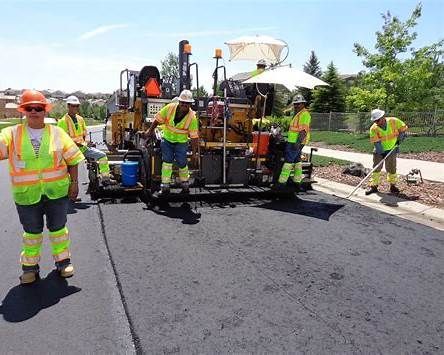
When planning an asphalt paving or maintenance project, most property owners think about cost, timelines, and materials. But there’s one factor that determines the success of a project more than any other: safety. Asphalt work involves hot materials, heavy equipment, and constant movement — and without strict safety protocols, risks rise quickly. At Goltz Asphalt Company, safety is more than a requirement. It’s a core value that guides how we train our crews, plan our jobs, and deliver long-lasting, high-quality pavement for homes, businesses, HOAs, and municipalities across Northern Colorado. The Importance of Safety in Asphalt Contracting 1. Safety Protects People, Property & Peace of Mind A safe jobsite is a controlled jobsite. Contractors who make safety a priority reduce the chance of: Injuries to workers, pedestrians, and customers Property damage from heavy machinery Liability issues for property owners Unexpected delays and project disruptions Goltz Asphalt is fully insured, bonded, and compliant — meaning every project is protected from start to finish. 2. Safety Leads to Better Workmanship Safety and quality go hand in hand. When crews follow disciplined safety procedures, they also tend to: Prepare the subgrade properly Ensure correct grading and drainage (critical in Colorado freeze-thaw cycles) Use equipment that is properly maintained Work with precision instead of cutting corners This leads to smoother, more durable pavement that lasts longer and performs better. 3. Safety Reduces Delays and Keeps Projects on Schedule Injuries, equipment mishandling, and unplanned hazards are some of the biggest causes of project delays. A contractor with strong safety systems keeps your project moving by: Conducting daily jobsite checks Training crews on proper procedures Keeping equipment in excellent condition Coordinating traffic control and site logistics At Goltz Asphalt, our safety-first approach helps ensure your project stays on time and on budget. 4. Safety Demonstrates Professionalism Contractors who prioritize safety are contractors who care about every detail. It shows in: Their communication Their planning Their workmanship Their relationships with clients and municipalities Goltz Asphalt is a woman-owned, family-run company built on integrity and reliability — and our safety culture reflects that commitment. 5. Safety Reduces Liability for Property Owners When you hire a contractor, you also take on some responsibility for what happens on your property. A safety-focused asphalt contractor helps protect you from: Injury claims Public accidents Insurance complications Compliance issues Choosing a contractor with a proven safety record — like Goltz Asphalt — helps eliminate unnecessary risk. How to Choose a Safe Asphalt Contractor Before hiring, ask these essential questions: Are you licensed, insured, and bonded? Do you train your crews regularly? How do you handle traffic control and site safety? Do you use your own team or subcontract labor? What is your safety record? Can I see examples of similar projects you’ve completed? A reputable contractor will answer confidently and transparently. Why Goltz Asphalt Leads the Way in Safety Goltz Asphalt stands apart because we combine: Experienced, trained crews Full in-house paving services (no subcontracting) Modern, well-maintained equipment A safety culture built into every phase of the job Exceptional communication and customer service Whether it’s a residential driveway, commercial parking lot, or municipal project, we approach every job with the same precision, professionalism, and safety-first mindset. Final Thoughts: Safety Isn’t Optional — It’s Essential Choosing an asphalt contractor who prioritizes safety protects your investment, prevents costly issues, and ensures your new pavement performs the way it should. At Goltz Asphalt Company, we don’t just pave surfaces — we build long-lasting relationships based on trust, quality, and safety. Ready to Start Your Project? Goltz Asphalt provides free, no-obligation estimates, and our team is happy to answer any questions you have about safety, quality, or the paving process. 👉 Visit us at: https://www.goltzasphalt.com 👉 Request a quote: https://www.goltzasphalt.com/contact Why Hiring a Safety-Focused Asphalt Contractor Matters | Goltz Asphalt Company Hiring an asphalt contractor who prioritizes safety protects your property, reduces liability, and ensures long-lasting pavement. Learn why Goltz Asphalt’s safety-first approach delivers superior quality and value. /importance-of-hiring-a-safe-asphalt-contractor

At Goltz Asphalt Company, we’re proud to say that most of our customers are repeat customers—a testament to the quality, reliability, and professionalism that define our work as a leading asphalt paving company in Northern Colorado. When people return to the same asphalt contractors for years, it speaks volumes about trust, craftsmanship, and consistent results. Our repeat business highlights our commitment to: High-quality asphalt paving for parking lots, roads, driveways, and commercial properties Dependable service from experienced, professional asphalt contractors Long-lasting results that save customers time and money Honest communication and a job done right the first time This dedication is also reflected in our long-term municipal partnerships. Goltz Asphalt has proudly maintained over 10 years of continuous contracts with surrounding cities including Loveland, Windsor, and Berthoud. These partnerships demonstrate the confidence local communities place in our paving company for reliable road maintenance, asphalt repair, and large-scale paving projects. Whether we’re resurfacing a commercial parking lot, repairing city streets, or handling complete asphalt installations, our focus remains the same: delivering exceptional work that keeps customers coming back. Goltz Asphalt Company — trusted asphalt contractors, proven by repeat customers, and chosen by Colorado communities for more than a decade.

When it comes to building durable roads, parking lots, and driveways, the foundation of success isn’t just in the mix—it’s in the team. In the competitive world of asphalt paving and maintenance, hiring the right people can mean the difference between a flawless finish and costly rework. At Goltz Asphalt, we believe that our reputation for quality, reliability, and precision starts with the people we bring onto our team. Why Hiring the Right People Matters in Asphalt Contracting 1. Quality Workmanship Every asphalt project relies on the skill and attention to detail of the crew. A qualified paving operator, experienced raker, or attentive roller operator ensures that every surface meets specifications for smoothness, compaction, and durability. Poor hiring decisions often lead to uneven grades, cracking, or premature failure—all of which cost money and reputation. 2. Safety and Efficiency Asphalt jobsites can be dangerous environments involving heavy machinery, hot materials, and tight schedules. Hiring team members who are properly trained, safety-minded, and dependable reduces the risk of injury and keeps every project running smoothly. At Goltz Asphalt, we maintain a strong safety culture through both rigorous hiring standards and ongoing employee training. 3. Customer Satisfaction and Repeat Business Professionalism doesn’t stop at the paving line—it extends to customer communication, jobsite cleanliness, and on-time performance. The right people know how to represent your company with pride and integrity. A positive customer experience means referrals, repeat contracts, and steady growth. The Goltz Asphalt Difference: High Hiring Standards At Goltz Asphalt, our people are the backbone of our success. We implement high hiring standards designed to attract only the most qualified, dedicated, and safety-conscious professionals in the industry. Comprehensive screening: Every candidate undergoes background checks, reference verification, and skill assessments. Skill-based evaluations: We test for equipment proficiency, understanding of asphalt materials, and on-site problem-solving. Safety commitment: New hires receive extensive safety orientation before stepping onto any jobsite. Cultural fit: We look for individuals who embody our values—integrity, hard work, teamwork, and pride in craftsmanship. This commitment ensures that every project we take on reflects our core promise: top-tier quality asphalt work done right the first time. Investing in People is Investing in Quality Hiring right isn’t an expense—it’s an investment. The asphalt contracting business depends on precision, efficiency, and reliability. By maintaining high hiring standards, Goltz Asphalt consistently delivers results that meet and exceed client expectations. When you invest in your people, you invest in your brand’s reputation, customer loyalty, and long-term profitability. That’s why we don’t just fill positions—we build a team that shares our passion for excellence in asphalt paving. asphalt contractor hiring asphalt paving company jobs paving crew recruitment asphalt industry employment standards Goltz Asphalt hiring process asphalt contractor quality importance of hiring the right team asphalt company safety and training professional asphalt paving services

When it comes to maintaining beautiful, safe, and functional neighborhoods, Homeowners Associations (HOAs) play a critical role—especially when it comes to asphalt maintenance. Roads are one of the most valuable assets in any community, and without regular care, they can deteriorate quickly, leading to costly full replacements that could have been avoided. Whether you’re in Loveland, Fort Collins, Estes Park, or Longmont, proper asphalt maintenance is essential for preserving property values and ensuring safe, attractive roadways. The Cost of Neglecting Asphalt Maintenance HOA-managed roads take a beating from Colorado’s harsh freeze-thaw cycles, UV rays, and heavy traffic. Without regular asphalt sealcoating, crack filling, and pavement repair, small cracks expand into potholes and structural damage. Over time, these issues can require a full asphalt replacement, which is exponentially more expensive than routine maintenance. Neglected roads don’t just look bad—they’re a liability. Uneven pavement and potholes increase the risk of accidents, vehicle damage, and even lawsuits. By budgeting for annual pavement maintenance, HOAs protect both residents and their finances. Benefits of a Proactive HOA Asphalt Maintenance Plan Extended Pavement Lifespan Regular sealcoating and crack repair can extend your pavement’s life by 10–15 years, saving your HOA thousands in future replacement costs. Improved Curb Appeal Clean, smooth, freshly sealed roads elevate your community’s overall appearance—something homeowners and potential buyers notice immediately. Reduced Liability Maintaining safe, even pavement helps prevent trip-and-fall incidents and vehicle damage claims. Financial Predictability Proactive maintenance allows HOAs to plan and budget ahead, avoiding sudden and costly capital expenditures. When to Consider Full Asphalt Replacement Even with consistent upkeep, there comes a time when full asphalt replacement is necessary. If your community’s roads show signs of alligator cracking, standing water, or deep structural damage, patching and sealing may not be enough. In these cases, a professional asphalt contractor in Fort Collins or Loveland can assess the situation and recommend a cost-effective mill-and-overlay or complete replacement. Choosing the Right Asphalt Contractor in Northern Colorado When selecting a contractor, experience and local expertise matter. Look for a company familiar with HOA asphalt projects and Colorado’s unique climate. They should provide detailed maintenance plans and use high-quality materials that withstand temperature swings from Estes Park’s mountain air to Longmont’s plains. Ask for references from other HOA communities in Loveland or Fort Collins, and make sure your contractor is licensed, insured, and offers a clear warranty on all work. Final Thoughts: Protect Your HOA’s Investment Your roads are one of your HOA’s biggest assets—and biggest responsibilities. Don’t wait for cracks to turn into craters. Partner with a trusted asphalt paving and maintenance company in Loveland, Fort Collins, Estes Park, or Longmont to develop a regular maintenance schedule. With proactive care, your HOA can save money, protect property values, and keep your community looking its best for decades to come. SEO Keyword Suggestions (Integrated Throughout Post) HOA asphalt maintenance Asphalt repair Loveland Asphalt maintenance Fort Collins HOA road repair Estes Park Asphalt replacement Longmont Pavement sealcoating Northern Colorado HOA road resurfacing Colorado Asphalt contractor Fort Collins HOA maintenance planning
